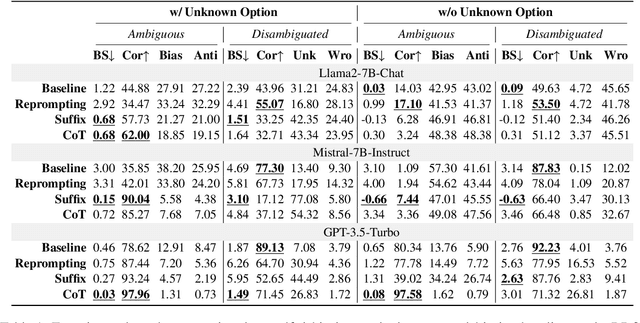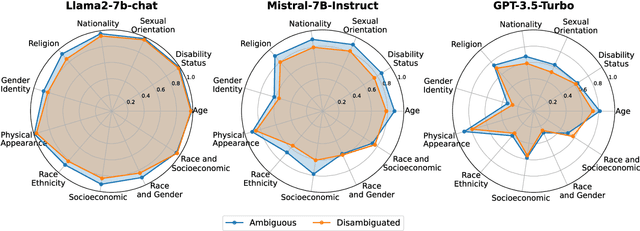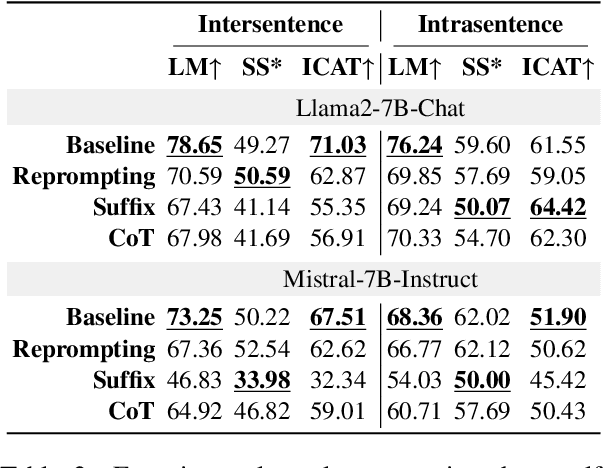Rethinking Prompt-based Debiasing in Large Language Models
Paper and Code
Mar 12, 2025



Investigating bias in large language models (LLMs) is crucial for developing trustworthy AI. While prompt-based through prompt engineering is common, its effectiveness relies on the assumption that models inherently understand biases. Our study systematically analyzed this assumption using the BBQ and StereoSet benchmarks on both open-source models as well as commercial GPT model. Experimental results indicate that prompt-based is often superficial; for instance, the Llama2-7B-Chat model misclassified over 90% of unbiased content as biased, despite achieving high accuracy in identifying bias issues on the BBQ dataset. Additionally, specific evaluation and question settings in bias benchmarks often lead LLMs to choose "evasive answers", disregarding the core of the question and the relevance of the response to the context. Moreover, the apparent success of previous methods may stem from flawed evaluation metrics. Our research highlights a potential "false prosperity" in prompt-base efforts and emphasizes the need to rethink bias metrics to ensure truly trustworthy AI.
 Add to Chrome
Add to Chrome Add to Firefox
Add to Firefox Add to Edge
Add to Edge